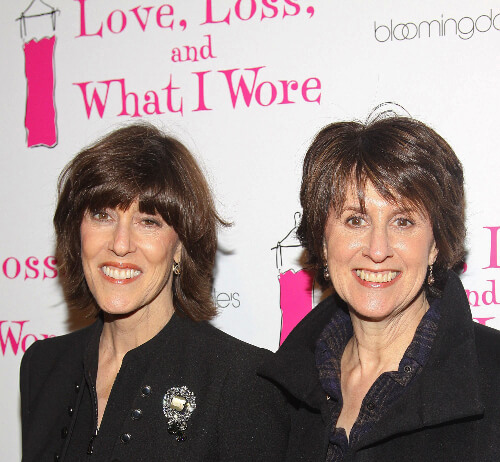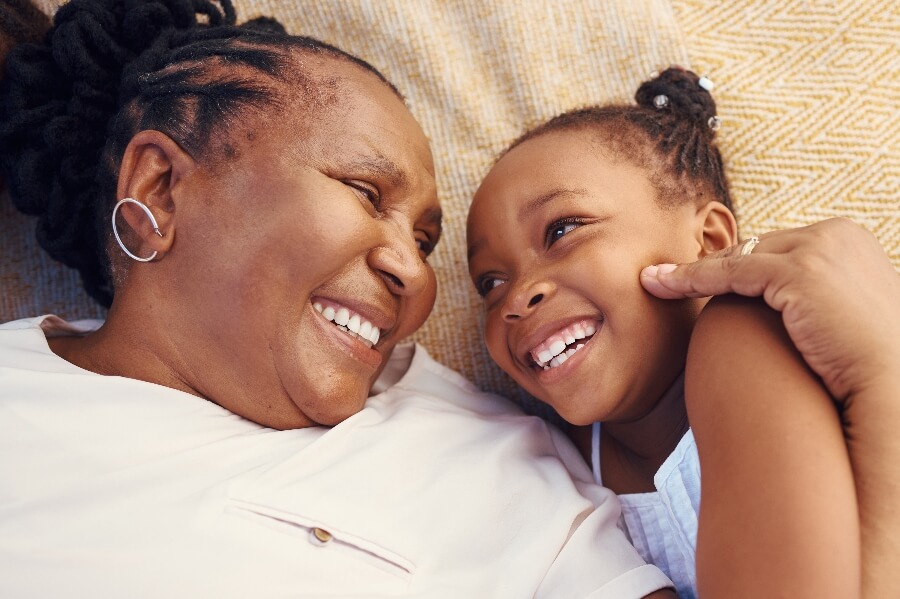“It’s funny,” Delia Ephron is saying, when I talk to her by phone at the end of April. “Life just hands you stuff. You can’t control what it hands you. Yes, there’s magic. But then there’s this unfathomably awful thing. There are extremes in battle. When I fell in love it was kind of instant and wonderful—and over email; it was funny, to fall in love over e-mail after writing You’ve Got Mail. But then—this other thing! It was phenomenal to feel so much love and then to get that diagnosis.”
Delia Ephron is talking, of course, about her instant-New York Times-bestselling memoir Left On Tenth: A Second Chance at Life. This, her fourteenth book, is a beautiful if occasionally harrowing hymn to love, perseverance, humor, friendship—and, yes, glamour—in the course of heroically and persistently battling a dread disease. Delia is the second of the four famous writing Ephron sisters (the beloved Nora died in 2012. After Delia is Hallie and then Amy) who were raised in Beverly Hills, explicitly to be writers. Their parents were the tart-tongued Henry and Phoebe Ephron, who wrote the likes of Desk Set for Katherine Hepburn and Spencer Tracy and There’s No Business Like Show Business for Marilyn Monroe.
The book covers an extraordinary ten years of her life.Here’s what happened: Nora, with whom Delia often collaborated (on You’ve Got Mail, among other screenplays), died of leukemia ten years ago. Three years later—in 2015—Delia’s husband of three decades, screenwriter and playwright Jerry Kass, succumbed to prostate cancer after suffering six years with it. Less than two years after that, Delia found herself unexpectedly falling almost immediately in love with Marin County-based psychiatrist and Jungian analyst Peter Rutter, a widower who elegantly and decorously courted her. His wooing started with an email in which he pointed out that he and Delia had been fixed up, by Nora, 54 years earlier and had gone on several dates, the details of which had stayed with him but which she could not remember. Their ages—72 at the time—and the mutual loss of their spouses gave their elegiac romance a profound gravity. In addition, Delia was nursing the fact that her “abnormal” bone marrow readings pointed to a potential health crisis not unlike Nora’s.
Read More: Author Ann Hood on Staying Happy Even Through Tragedy
Falling in Love
“The confluences” between her and Peter, evident in those emails, “were amazing,” Delia tells me. “Even aside from Nora fixing us up, a month before Peter wrote to me I was invited to speak at a Jungian conference,” which is Peter’s wheelhouse, of course. “And he and his wife’s last trip was to Siracusa. Who goes there?” she says of the stone-paved Sicilian city on the coast of the Ionian Sea. “I had just written a book about it.” This was Delia’s 2013 bestselling novel Siracusa, which is called “a powerful meditation on marriage, friendship, and the meaning of travel.”
There was so much bad luck wrapped up in good luck!
Peter, it turned out, was a kind of feminist’s dream man. “He was so substantive! He’d spent a decade doing nothing but defending abused women in court. How did that drop into my life? And he was a doctor ! It was like he was sent to take care of me. There was so much bad luck wrapped up in good luck!”
After falling in love over email, Peter came to New York and they met in Washington Square Park, where they talked for hours. When she told him that if she got very sick he had her permission to leave her he replied, “I could never do that.’’
Falling Sick

The exquisite Ephron sisters in 2009 at the opening of the play “Love, Loss, and What I Wore,” which they wrote together.
In short order Delia found out she had leukemia: the same kind as Nora had died of—aggressive A.M.L.: acute myeloid leukemia. The similarity was frightening but also poignant because unlike Nora, Delia was able to join a clinical trial for a non-FDA-approved chemotherapy drug, CPX-351. “We’ll get through this,” Peter responded to the news, with the unfailingly positive attitude that he would manifest throughout their journey.
Four months after she and Peter meet, Delia entered Weill Cornell Hospital’s leukemia wing—where Nora had died—and, in March 2017, a day after she had her first chemo treatment, she and Peter were married at her bedside. Delia’s memoir takes us through her first round of chemotherapy and the delicacy of—and the vulnerability brought on by—remission.
“The most stunning thing about remission is the glorious sense that I have been given life, coupled with the terrible fear that death is around the next lamppost,” she writes.
Her second round of chemo was followed by a deeply risky stem cell transplant. Since she was in her seventies, she had only a 20 to 40 percent chance of surviving it. “That was the low point—to find that the odds were so low—but once I decided to have it, I felt a little more hope.” Still, in a rare instance in which her own awesome life force flagged, Delia called out, “I am frantic and sick and desperate to die” during the extremely painful transplant.
She was in the ICU for six days, “something I didn’t remember,” she tells me, adding that “writing the book was like a treasure hunt,” which included lots of phone calls to friends, poring over pages and pages of old texts, and examining medical records. “I lost 25 pounds. I was this little rag of a person. But Peter kept saying, ‘It’s working; it’s working!’” After her successful recovery and her discharge—after a 49-day stay—Delia felt utter elation at being alive.
She has been cancer-free for two years now.
Feeling Stronger
I was taken by the generosity, and charm, of her intimates and of others in her medical circle during her ordeal. Peter is unflaggingly adoring and optimistic—almost too good to be true. Her hair stylist Eugene Smith not only gives her world-class blow-outs to which she has become addicted and is, she tells me, “the most calming person I’ve ever known,” but he also has a terrific cake business on the side. He contributed a luscious number to her and Peter’s wedding party.
It was love and medicine that got me through.
Then there are Delia’s women friends. As she puts it to me: “A lot of what my book is about is the incredible bonds you can have with your friends. It was love and medicine that got me through. My girlfriends—my super-fabulous, soulful women warriors—were just extraordinary.” They included Meredith White, the former managing editor of the San Francisco Chronicle, “who had this huge history of medical editing—nobody who’s not a doctor understands more than she.” White flew from California and back to be with her, reading the medical reports and test results with Peter with every new dispatch.”
Theater and screen director Jessie Nelson was the person to whom Delia forwarded her initial Peter emails: at the very beginning of their romance, she was Delia’s love guide. (Delia initially greeted the fact that Peter wears a backpack with an exaggerated-New Yorker aversion to his very idyllically and wholesomely non-urban ways. Jessie put it in perspective: “Everyone in Northern California has a backpack. Even Mark Ruffalo has a backpack.”)
“I got my mothering from Linda,” Delia says, of Linda Diaz, the assistant who worked for her and Nora for thirty years and who had survived an earthquake in her native Nicaragua that had turned her house into a pile of rubble. Another devoted friend was writer-actress-business owner Natasha Gregson Wagner (daughter of the late Natalie Wood)—one of several of Delia’s “friend-daughters” who “teach me things I don’t know, as I teach them things they didn’t know—and help me shop, so I look better.”
Natasha’s stepmother Julia Gregson provided vital, upbeat support. “All these bonds matter,” Delia writes. “They are little homes. Places of safety. I am taking stock now of friendship. God, I love my friends.” She reports that all her friends have emotional intelligence. “And loyalty,” she tells me. “I count on them for that. I like to think I give it back to them.”
Moving Forward
For all her privilege and earned contentment, Delia came by her evolved life the hard way. Her mother was an alcoholic, and, after hearing her parents’ screaming matches, she lived in “terror” at home, from the age of eleven on, she writes in the book. And “I blew my twenties,” she tells me. “I had a bad first marriage—it was bad for both of us. It took a lot of therapy” to get to where she eventually got: able to learn, through her second husband Jerry Kass, and then of course through Peter, “what a good guy was.”
Nora is with me all the time.
These days Delia is concentrating on promoting the book, her health and “having fun with Peter—we think having fun is very important.” She does not say what her next project is, but it is hard to imagine that Left on Tenth will not become a movie. She is also working with The Empathy Project, which is led by her friend Dr. Jonathan LaPook, the head of the CBS News medical team who was also a close advisor to her and Peter during every twist and turn of her medical ordeal. The Project is supported by NYU Langone, one of the largest hospital groups in New York City, and is aimed, through films and other creative projects, at making doctors more responsive to what the patient experiences. “If I can do that,” she tells me, “I am very happy.”
I ask her if she still thinks about her deceased previous husband, Jerry. “Think of Jerry? Jerry’s with me all the time, in every way. I’m sitting at my office desk and there’s a picture of him on my left. Your life gets more textured when you get older. Jerry really nurtured me. He was my first home. He taught me so much about writing. I had great mentors. Jerry and Nora.
“And Nora is with me all the time,” she says.
I used to think of Delia Ephron—like her sister Nora—as wry and ironic. She may be that, of course. Still, now I think of a different adjective: soulful.
Read More: How Surviving Cancer and Rape Taught Fran Drescher to Fully Embrace Life





















0 Comments